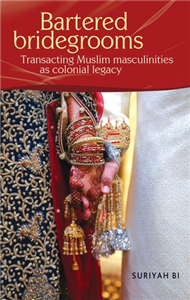Description
More Information
Rights Information
Albania, Algeria, Angola, Argentina, Armenia, Australia, Austria, Bahrain, Belgium, Belize, Benin, Bolivia, Bosnia and Herzegovina, Botswana, Brazil, Bulgaria, Burkina Faso, Burundi, Cameroon, Canada, Cape Verde, Central African Republic, Chad, Chile, China, Colombia, Comoros, Congo [DRC], Congo, Republic of the, Costa Rica, Ivory Coast, Croatia, Czech Republic, Denmark, Djibouti, Ecuador, Egypt, El Salvador, Equatorial Guinea, Eritrea, Estonia, Ethiopia, Faroe Islands, Finland, France, French Guiana, Gabon, Gambia, Georgia, Germany, Ghana, Greece, Guatemala, Guinea, Guinea-Bissau, Guyana, Honduras, Hongkong, Hungary, Iceland, India, Indonesia, Iran, Iraq, Ireland, Israel, Italy, Japan, Jordan, Kazakhstan, Kenya, Kuwait, Latvia, Lebanon, Lesotho, Liberia, Libya, Lithuania, Luxembourg, Macau, China, Macedonia [FYROM], Madagascar, Malawi, Malaysia, Mali, Malta, Mauritania, Mauritius, Mayotte, Mexico, Mongolia, Montenegro, Morocco, Mozambique, Namibia, Netherlands, New Zealand, Nicaragua, Niger, Nigeria, Norway, Oman, Pakistan, Panama, Paraguay, Peru, Philippines, Poland, Portugal, Puerto Rico, Qatar, Reunion, Romania, Russia, Rwanda, Saint Helena, Sao Tome and Principe, Saudi Arabia, Senegal, Serbia, Seychelles, Sierra Leone, Singapore, Slovakia, Slovenia, Somalia, South Africa, South Korea, Spain, Sri Lanka, Sudan, Suriname, Swaziland, Sweden, Switzerland, Syria, Taiwan, Tanzania, Thailand, Timor-Leste, Togo, Tokelau, Tunisia, Turkey, Uganda, Ukraine, United Arab Emirates, United Kingdom, United States, Uruguay, Venezuela, Vietnam, Western Sahara, Yemen, Zambia, Zimbabwe, South Sudan, Cyprus, Palestine, Bangladesh, Cambodia, Liechtenstein, Azerbaijan, Jamaica, Kyrgyzstan, Dominican Republic, Myanmar, Monaco
Endorsements
Muslim men are often portrayed in academic and popular discourses as violent patriarchs and/or as terrorists. Against the backdrop of an increasingly hostile environment within the UK, the experiences of Muslim migrant husbands in the Pakistani and Kashmiri diaspora are explored. The uncertainties of migrant journeys tethered to cultural and religious marital norms intersect with gendered experiences of masculinity across space and time. In depth interviews with sixty-two migrant husbands shed light on the precarity and vulnerability migrant husbands experience. Their aspirational masculinities often stem in the home country with collective familial dreams of migration, but often turn sour through the exposure of domestic and employment power dynamics when in the UK. The ethnography highlights experiences of domestic violence experienced by migrant husbands. The development of in-between or liminal masculinity becomes a lived reality for these men on the move, ultimately resulting in novel ways in which reasserting masculinity is sought through religious Sufi and musical forms. The book weaves together transnational dynamics between people and place along the contours of colonial legacies, showing self and other power dynamics present within a single group identity. Violence is inflicted to incoming migrants by British-born or British citizen counterparts through the immigration system. The book shows how citizenship can be weaponised as a performance of whiteness, namely white power.
Reviews
Muslim men are often portrayed in academic and popular discourses as violent patriarchs and/or as terrorists. Against the backdrop of an increasingly hostile environment within the UK, the experiences of Muslim migrant husbands in the Pakistani and Kashmiri diaspora are explored. The uncertainties of migrant journeys tethered to cultural and religious marital norms intersect with gendered experiences of masculinity across space and time. In depth interviews with sixty-two migrant husbands shed light on the precarity and vulnerability migrant husbands experience. Their aspirational masculinities often stem in the home country with collective familial dreams of migration, but often turn sour through the exposure of domestic and employment power dynamics when in the UK. The ethnography highlights experiences of domestic violence experienced by migrant husbands. The development of in-between or liminal masculinity becomes a lived reality for these men on the move, ultimately resulting in novel ways in which reasserting masculinity is sought through religious Sufi and musical forms. The book weaves together transnational dynamics between people and place along the contours of colonial legacies, showing self and other power dynamics present within a single group identity. Violence is inflicted to incoming migrants by British-born or British citizen counterparts through the immigration system. The book shows how citizenship can be weaponised as a performance of whiteness, namely white power.
Author Biography
Suriyah Bi is Lecturer in Human Geography and Qualitative Research Methods in the School of Geographical Sciences, University of Bristol.
Manchester University Press
Manchester University Press is a leading UK publisher known for excellent research in the humanities and social sciences.
View all titlesBibliographic Information
- Publisher Manchester University Press
- Publication Date October 2024
- Orginal LanguageEnglish
- ISBN/Identifier 9781526181329 / 1526181320
- Publication Country or regionUnited Kingdom
- FormatPrint PDF
- Pages288
- ReadershipCollege/higher education; Professional and scholarly
- Publish StatusPublished
- Dimensions234 X 156 mm
- Biblio NotesDerived from Proprietary 6215
- Reference Code16452
Manchester University Press has chosen to review this offer before it proceeds.
You will receive an email update that will bring you back to complete the process.
You can also check the status in the My Offers area

Please wait while the payment is being prepared.
Do not close this window.



